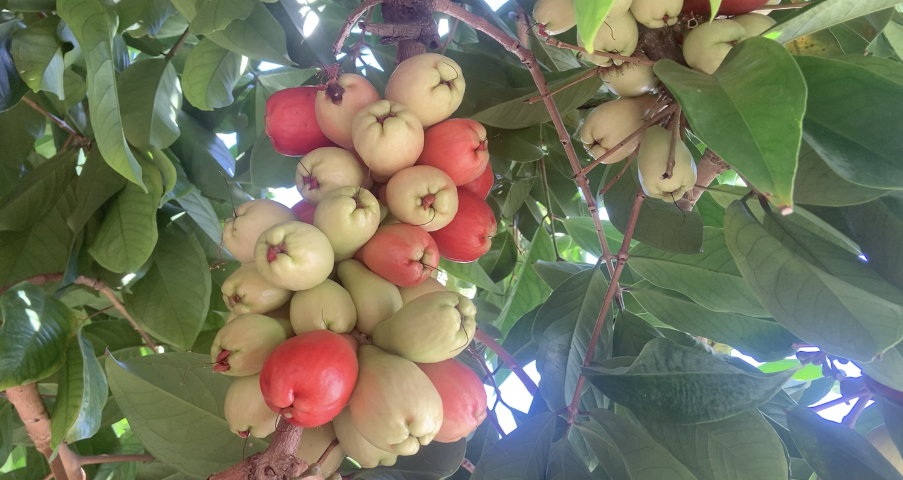The Jamaican apple, also known as the Otaheite apple or rose apple, is a tropical fruit native to the Caribbean island of Jamaica. It is a relative of the common apple but has a unique taste and texture. It looks similar to an American Anjou pear. The Jamaican apple has a with tough green skin before its ripe. When fully ripe, the fruit turns dark red almost purple with a delicate skin. Its flesh is sweet and juice with consistency like pear.

Jamaican apples are a good source of fiber, vitamins, and minerals, including vitamins C, B, and A, as well as iron, calcium, and potassium. These nutrients make Jamaican apples a beneficial addition to a healthy diet. The fruit is also low in calories and fat, making it a healthy snack.
The Jamaican apple tree grows well throughout the year in tropical and subtropical climates. The tree is easy to grow and care for, making it a popular choice for home gardens. Jamaican apples can also be used in various recipes, including smoothies, pies, and jams.
About Jamaican apple fruit
Despite its many benefits, the Jamaican apple is not widely known or available outside of the Caribbean region. Partially due to the difficulty to transport and store the fruit due to its delicate skin. For those who are able to try it, the Jamaican apple is a truly unique and delicious fruit to eat.
Many people in Jamaica enjoy this nutritious fruit year-round. Its unique taste, combined with its many health benefits, make it a great addition to any diet. Whether you eat it fresh or use it in recipes, the Jamaican apple is a great fruit to add to your diet.

